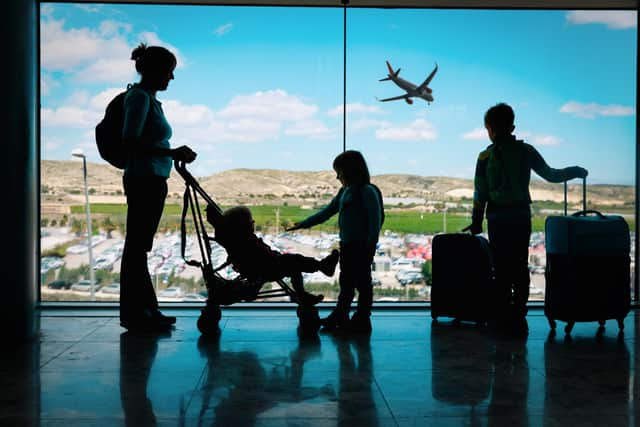What to do if your children don't come home from holiday with their other parent - Sharon Murray
This can be an extremely stressful situation, particularly when trust has been broken. However it’s important to be aware of some of the practical implications involved in organising the safe return of your child or children.
The country your child is visiting will dictate what happens next. A child travelling abroad who has not returned home is a “wrongful retention”, a form of child abduction. If the country your child is visiting has signed up to the 1980 Hague Convention on the Civil Aspects of Child Abduction, this provides an agreed court process for their return. It is worth checking the current list of Convention countries at the time of travel, as they can change. All members of the EU, USA, Australia and New Zealand have signed the Convention.
Advertisement
Hide AdAdvertisement
Hide AdIf your child is being retained in a Hague Convention “contracting” state, an application can be made to the Courts in that country for their safe return to where they are “habitually resident”. A child is habitually resident in the country where they spend most of their time and where they normally live. If your child usually lives with you in Scotland, then Scotland is their “habitual residence”.


It is important that a child abduction issue is dealt with quickly, following the failure to meet the confirmed arrangements between parents. This will avoid any question of a possible change in the child’s habitual residence to the country they are now in, or a suggestion that you have agreed to them moving there. These issues could prevent or delay their return.
Your child should return to you with the assistance of the government in the country they have been taken to, if it has signed the Hague Convention. It is important to note that the foreign court dealing with the return does not deal with or intervene in any other issues relating to parental rights and child custody. They will only deal with the return of the child or children.
If your child is being retained in a county that has not signed up to the Hague Convention, you will be required to make an application to the courts of that country for the return of your child. This will be dealt with according to the law in that country, rather than the process in the Convention. The outcome will depend on that country’s own child abduction laws and will be decided through their courts.
Some countries have their own child abduction protocols with the United Kingdom. Pakistan, for example, is a non-contracting state of the 1980 Hague Convention, but there is a UK-Pakistan Protocol which can be followed for child abduction matters between the two countries.


If you have concerns about where your child is travelling to on holiday with their other parent or need help in organising their safe return from abroad, you should seek legal advice from a family law specialist.
Sharon Murray is Partner & Head of Family Law, Gillespie Macandrew